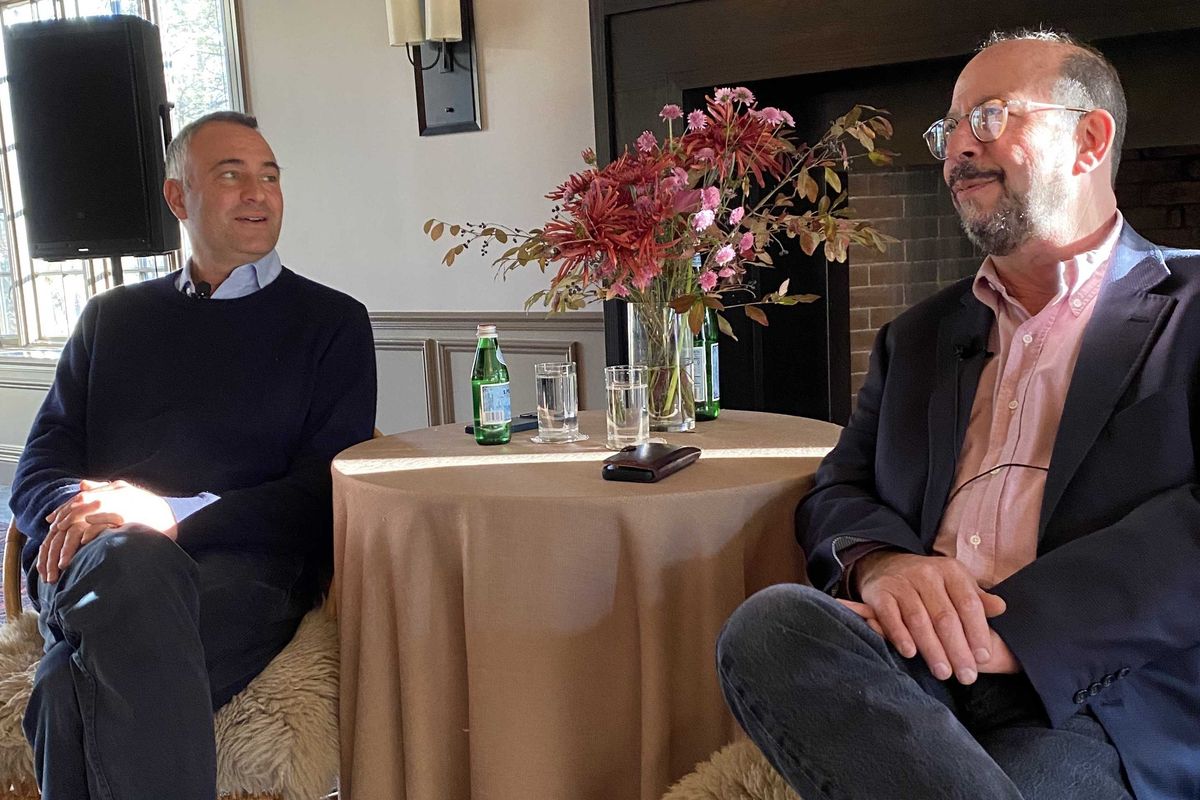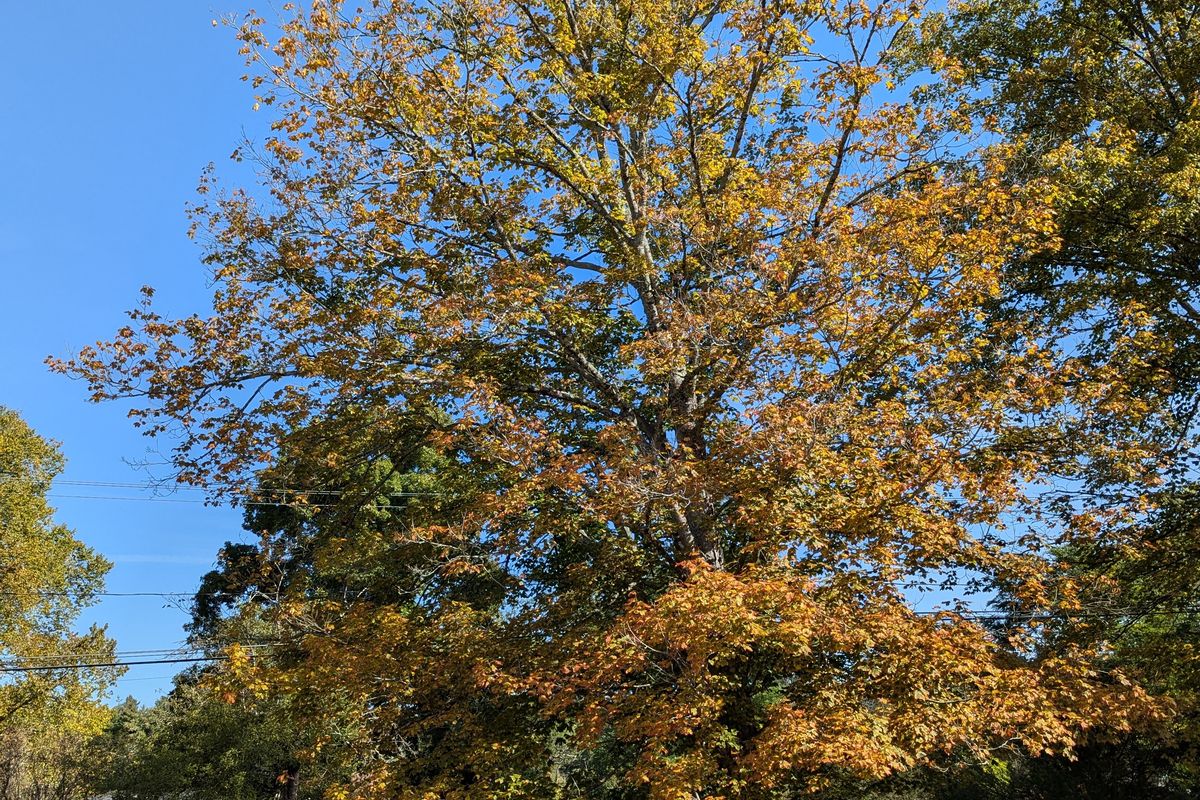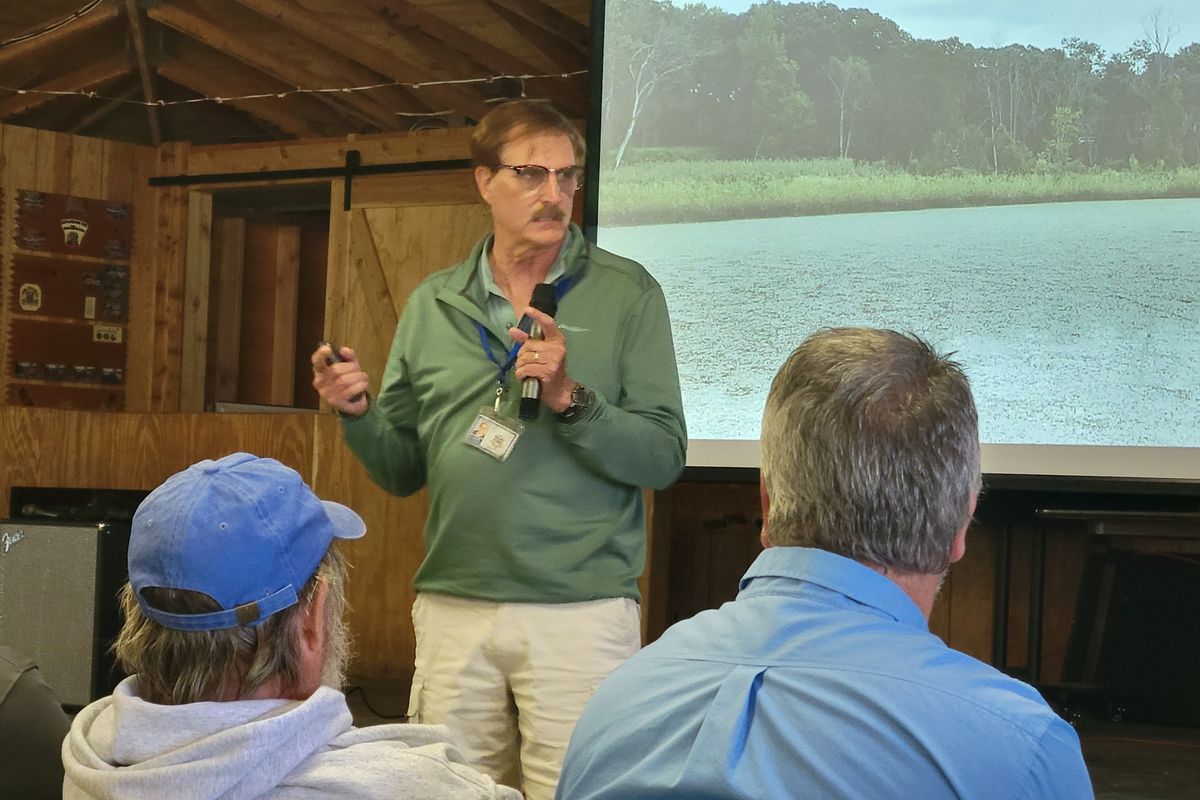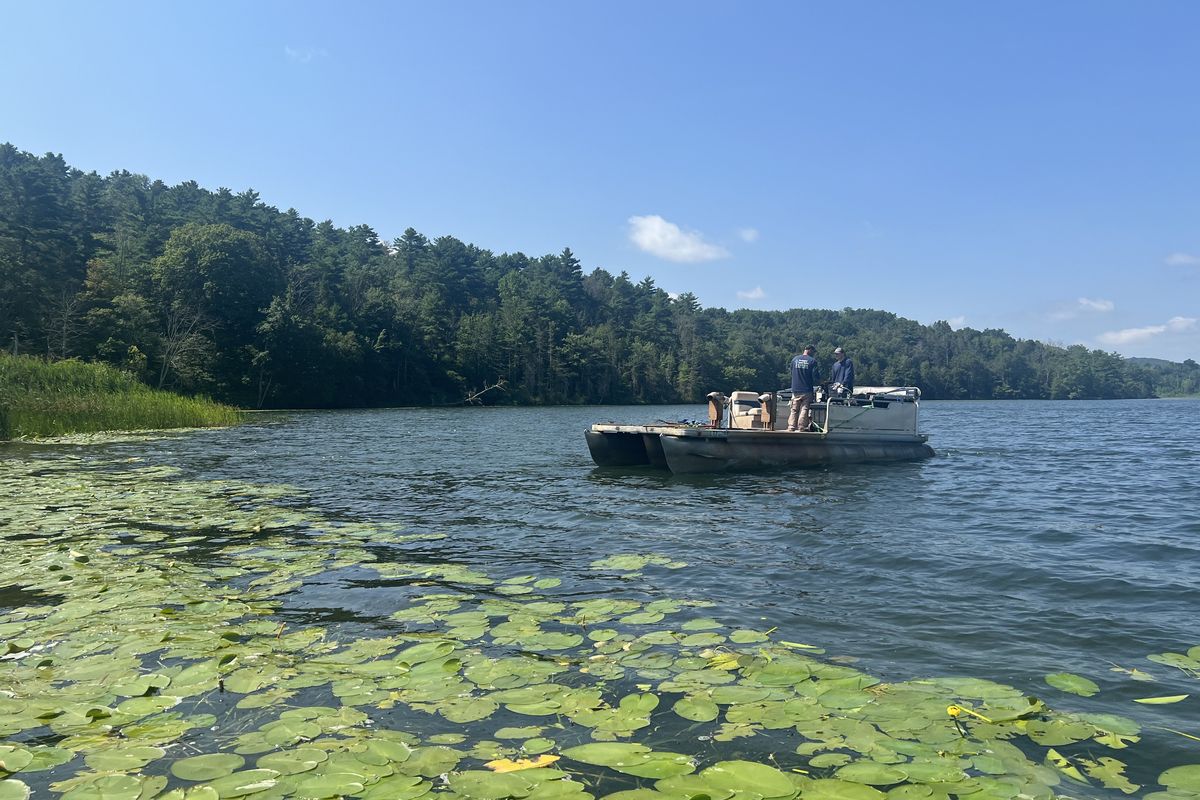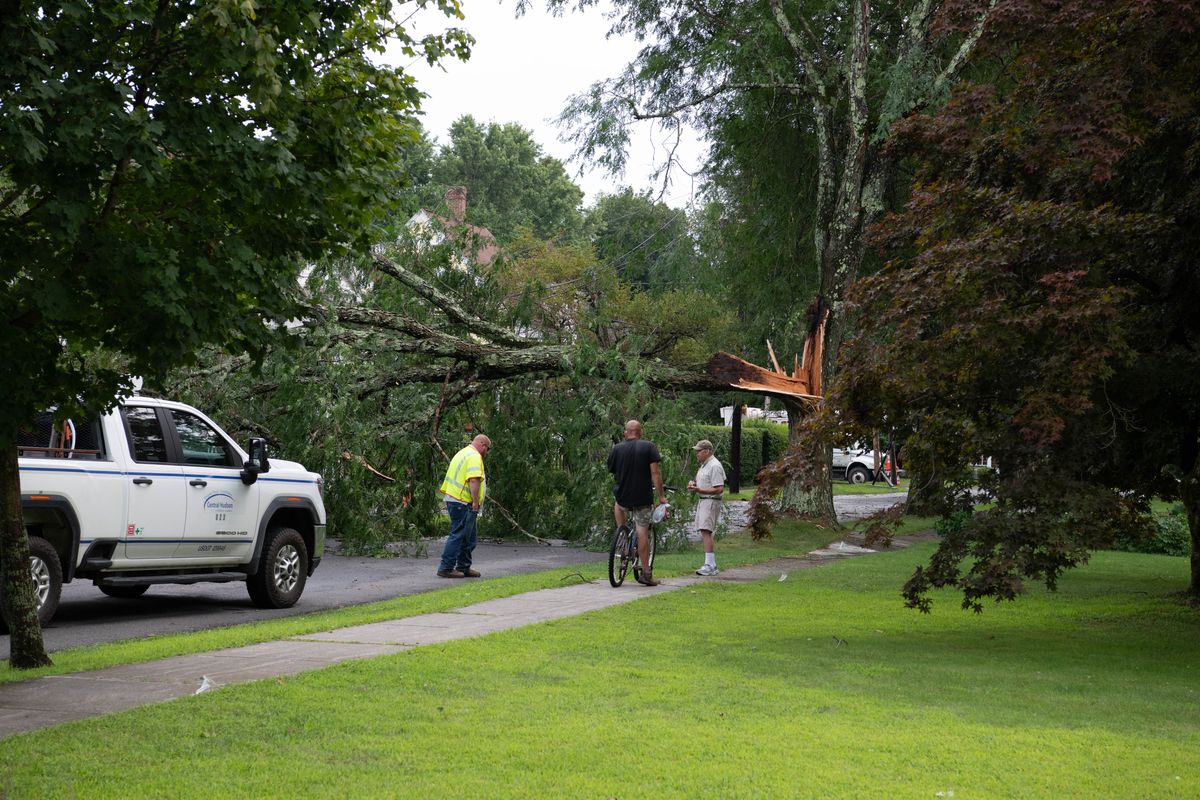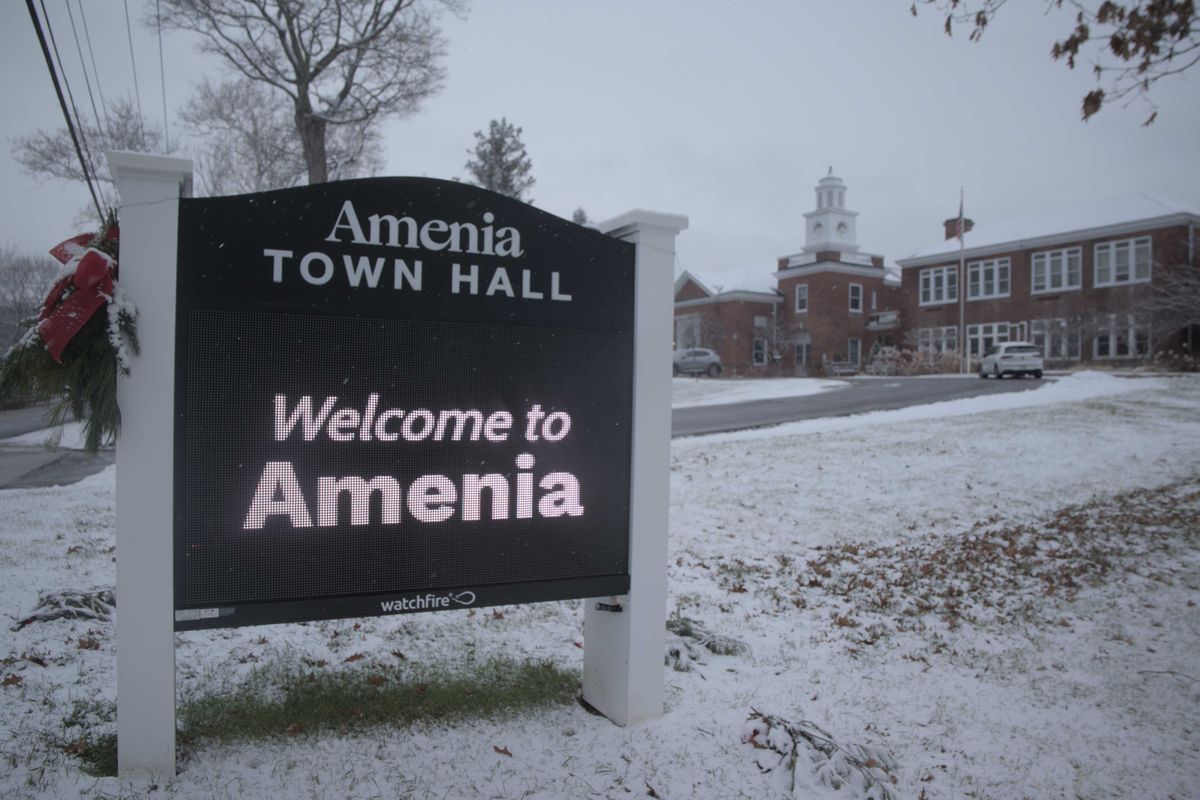Let’s talk about dirt: soil ecology hikes at the Cary Institute
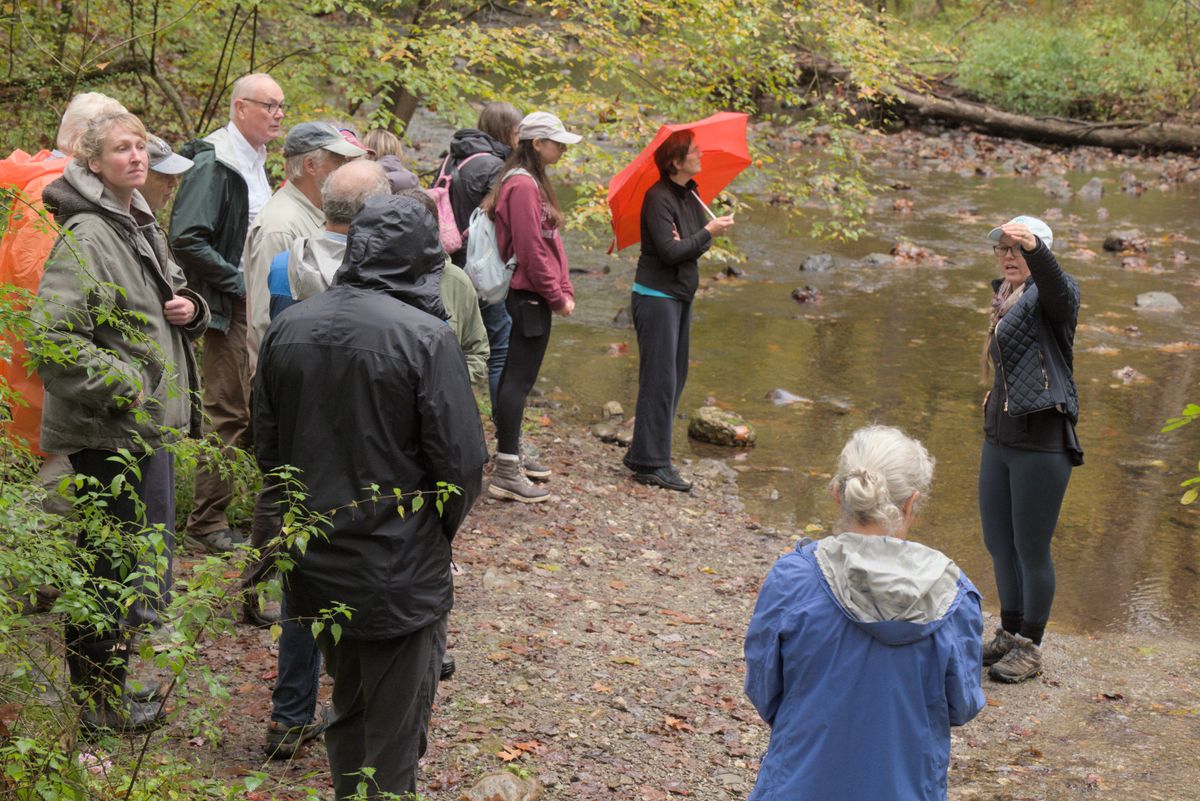
Jane Lucas, who holds a doctorate in ecology and evolutionary biology, at right in all black, leads an educational hike through the woods at the Cary Institute in Millbrook Sunday, Sept. 29. The group followed Lucas down the trail to Wappingers Creek, where she explained the nitrogen cycle, the phosphorous cycle and the carbon cycle and the important role soil microbes play in each.
Photo by Nathan Miller
